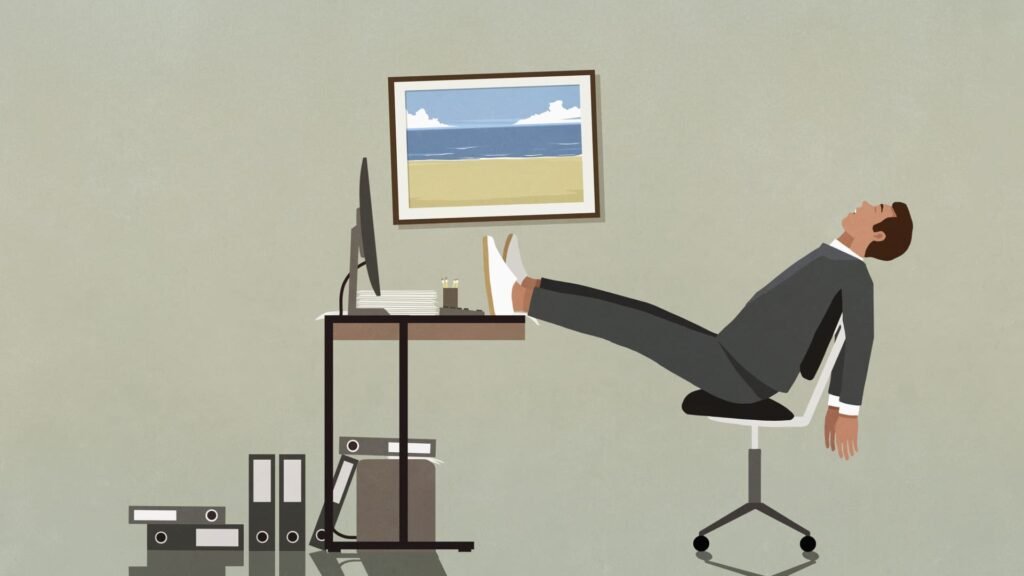Nearly two in three workers around the world are “vacation-starved,” according to a new report from Expedia.
However, the report shows that the sentiment is highest in cultures with the most vacation days.
According to Expedia’s “Vacation Deficiency Report” released on June 20, about 84% of respondents said they felt they didn’t have enough vacation time, and 69% of respondents said they didn’t have enough vacation time, even though respondents from these two countries took the most vacation days, 27 and 29 days respectively, in the survey.
In a survey of more than 11,500 workers, Americans have the fewest number of vacation days per year (11 days), followed by Japan (12 days). However, 65% of Americans feel they don’t have enough vacation time, compared to just 53% of Japanese.
The survey, Expedia’s 24th annual report on the subject, shows that while rates of vacation shortages are declining in many parts of the world, sentiment in the U.S. is at an 11-year high.
What is happening in France and Germany?
According to the Expedia report, the feeling of being “vacation deprived” likely has more to do with cultural mores around work and free time than actual vacation time taken.
“The French overwhelmingly view vacation as a basic, fundamental right, whereas Americans seem to view it as a guilty pleasure,” said Christy Hudson, director of communications for Expedia U.S. “That’s why even a month doesn’t seem like enough time for the average French worker.”
However, only 42% of Germans feel their employers support them in taking time off, the lowest percentage of all markets, Hudson said.
“This can create feelings of guilt and prevent people from feeling refreshed and disconnected after their holidays,” she said, adding that this can lead to a “vacation deficit” as people feel they are unable to use the days off they are entitled to.
Vacation days wasted
Despite most workers saying they felt they were lacking vacation time, respondents in almost every region admitted to letting some of their annual leave lapse.
But the report shows that Hong Kongers plan their holidays meticulously and, on average, don’t waste a single day of vacation.Interestingly, Hong Kong was the only place where workers said they planned to take more vacation time than they were given, Hudson said.
“In 2024, 15% of Hong Kongers plan to take 31 days of vacation, above the average of 25.5 days,” Hudson said. “This is an interesting finding and may be linked to the fact that Hong Kong appears to have a strong culture of support for paid vacation. 80% of Hong Kong workers agree that their employers support employees taking vacation days, one of the highest rates in the world.”
That could mean “a few extra days here and there going unnoticed,” she said.
Singaporeans also plan their holidays carefully, allowing only one of their 20 holiday days to expire per year, according to the report.
But it turns out that people in Japan aren’t as focused on making the most of their vacation time: On average, Japanese respondents go without vacation for 7 out of every 19 days.
One big break vs. many small breaks
According to the report, respondents in Japan reported the lowest levels of feeling “vacation deprived,” despite taking just 12 days off per year.
The report noted that this may be related to how Japanese people plan and spend their holidays.
According to a report by Expedia, nearly one in three workers in Japan gets one day off per month, compared with just 5% in the United States.
“In Japan, people are taking vacations every month instead of twice a year,” says Melanie Fish, head of brand communications for Expedia Group.
According to the report, many people schedule these mini-vacations to coincide with federal or school holidays, allowing them to get away from their daily routines for short and frequent periods.
The French are reportedly adopting a similar strategy, spreading their vacation days out throughout the year.
Meanwhile, Americans tend to save time off for a big annual trip, which may explain why they tend to leave some of their annual leave unused, the report said.
“Reducing the pressure of making big annual trips could save disadvantaged U.S. travelers time, money, and paid vacation time,” the report said.
According to the report, more than half of Americans who will forgo some vacation time in 2023 said the reason was that “life is too busy to plan or go on vacation.”
Additionally, the report found that Americans don’t prioritize rest and relaxation while traveling as much as other nationalities: Only 61% said that rest and relaxation is important to them, but “it’s the primary objective for 84% of Japanese travelers,” according to the Expedia report.




